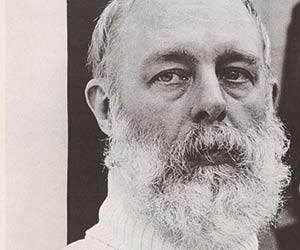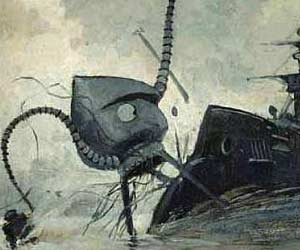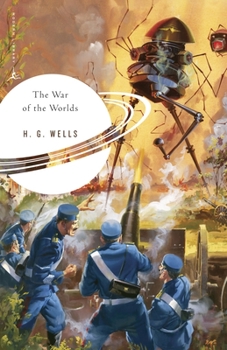The War of the Worlds
Select Format
Select Condition 
Book Overview
Customer Reviews
Beautiful Cover
Wrong cover
Great book! Wrong cover….
A classic
An Astonishing Imagination
A Wondrous Classic--"Across the gulf of space..." Read these lines!
Still a classic imposible to put down
The Book That Began Sci-Fi
The War of the Worlds Mentions in Our Blog


People love stories. Since injuring my hand, I found that people request stories even more when they see someone wearing a cast! The real story was mundane and typical, but that didn't stop me from having a little fun and telling good tale.

A hundred years ago, novelist H.G. Wells predicted that science would be "king of the world." Titanic's Jack Dawson may take issue with that claim, but he’d have a tough time disputing the compelling influence Wells had on politics, society, and the future that extended far beyond the literary realm. Considering Wells is one the founding fathers of sci-fi (along with Jules Verne and Edgar Rice Burroughs) and the author of The Time Machine, The Invisible man, The Island of Dr. Moreau, and The War of the Worlds, that's saying something.






